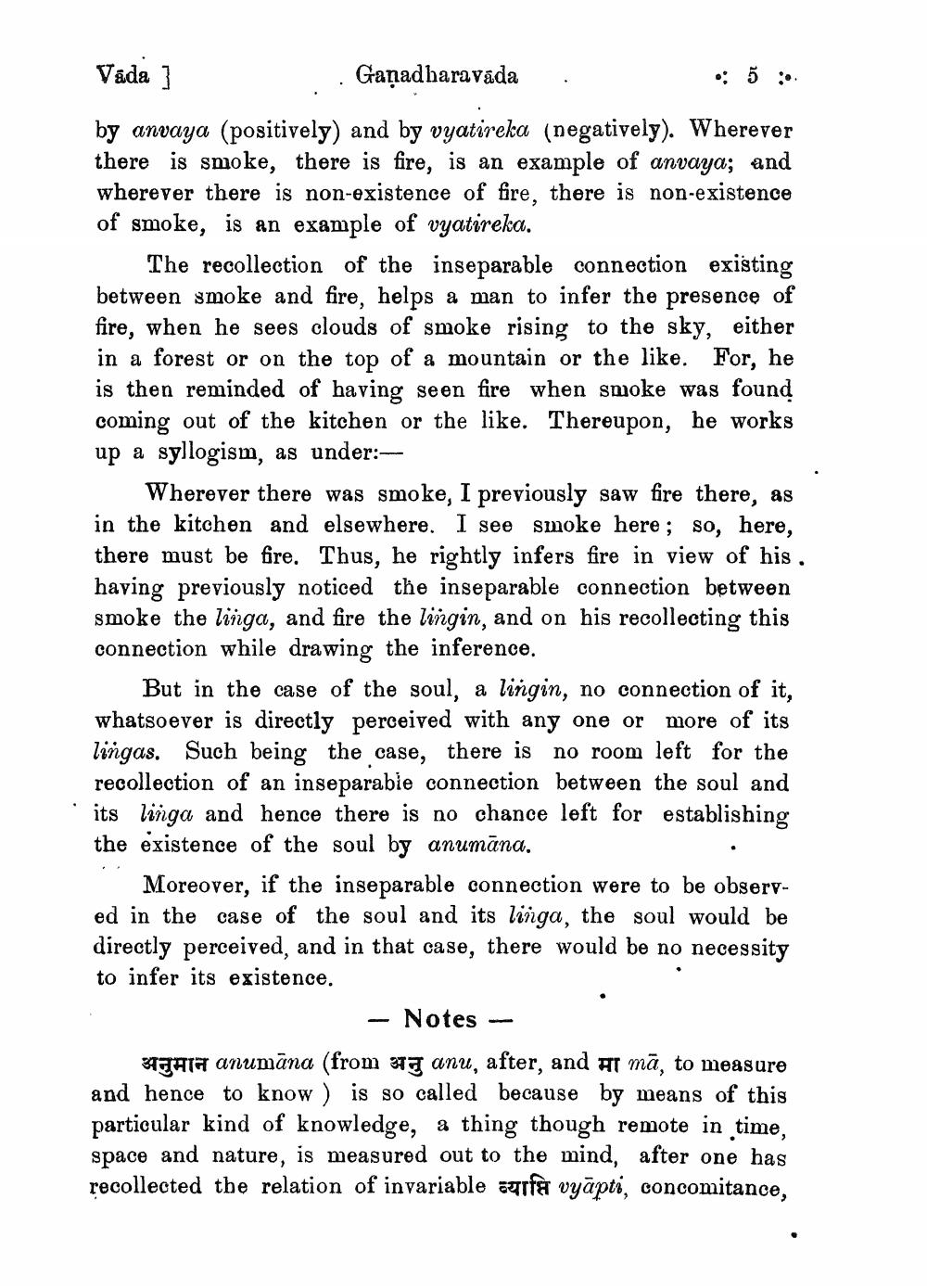________________
Vada ]
. Gañadharavada . by anvaya (positively) and by vyatireka (negatively). Wherever there is smoke, there is fire, is an example of anvaya; and wherever there is non-existence of fire, there is non-existence of smoke, is an example of vyatireka.
The recollection of the inseparable connection existing between smoke and fire, helps a man to infer the presence of fire, when he sees clouds of smoke rising to the sky, either in a forest or on the top of a mountain or the like. For, he is then reminded of having seen fire when moke was found coming out of the kitchen or the like. Thereupon, he works up a syllogism, as under:
Wherever there was smoke, I previously saw fire there, as in the kitchen and elsewhere. I see smoke here; so, here, there must be fire. Thus, he rightly infers fire in view of his. having previously noticed the inseparable connection between smoke the linga, and fire the lingin, and on his recollecting this connection while drawing the inference.
But in the case of the soul, a lingin, no connection of it, whatsoever is directly perceived with any one or more of its lingas. Such being the case, there is no room left for the recollection of an inseparable connection between the soul and its linga and hence there is no chance left for establishing the existence of the soul by anumāna.
Moreover, if the inseparable connection were to be observed in the case of the soul and its linga, the soul would be directly perceived, and in that case, there would be no necessity to infer its existence.
- Notes -
39Tara anumāna (from a anu, after, and Ar mā, to measure and hence to know ) is so called because by means of this particular kind of knowledge, a thing though remote in time, space and nature, is measured out to the mind, after one has recollected the relation of invariable sarfa vyāpti, concomitance,




